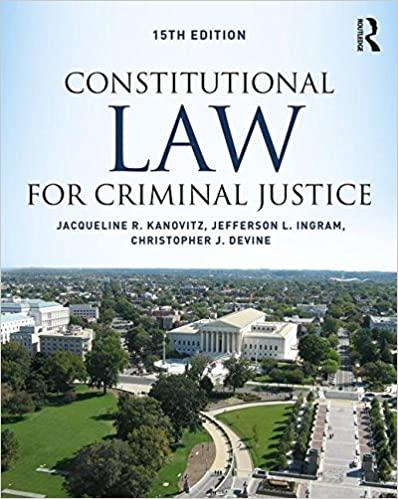Question
Keiko sends a letter to Sergei, offering to purchase 200 lie detectors at a price of $300 apiece. In her letter, she specifies that Sergei
Keiko sends a letter to Sergei, offering to purchase 200 lie detectors at a price of $300 apiece. In her letter, she specifies that Sergei would purchase insurance to cover the risk of loss during transit. Sergei replies by mail, accepting the offer but stating that Keiko, rather than Sergei, will purchase the insurance. Because Sergei's reply is not a "mirror image" of Keiko's offer, it is not an acceptance. It is a counteroffer pursuant to the UCC.
True
False
Isabella, a nonmerchant, makes an oral agreement with Xavier, another nonmerchant, to purchase goods worth more than $500. Later, Xavier sends Isabella a letter confirming the terms of their agreement. Isabella does not reply to this letter, and three weeks later Xavier ships the goods. Isabella refuses to accept delivery, and Xavier sues for breach. Because there is no writing, the contract is not enforceable under the statute of frauds.
True
False
A purchasing agent for Tirco, a merchant, made an oral agreement with Hutchinson, another merchant, to purchase goods worth $1,000. Hutchinson sent Tirco a letter confirming the terms of their agreement. Tirco did not reply to this letter, and three weeks later Hutchinson shipped the goods. Tirco refused to accept delivery, and Hutchinson sued for breach. The contract between Tirco and Hutchinson is enforceable under the statute of frauds.
True
False
If a merchant gives a signed written promise to keep an offer open for a specified time, he or she may not then revoke the offer during the time promised.
True
False
The Statute of Frauds requires that a contract for the sale of goods for $500 or more must be evidenced by a writing in order for it to be enforceable.
True
False
Ciji was supposed to sell Lull two shelves for a total of $300. After the agreement was made, Ciji told Lull that she was no longer willing to sell the shelves. Lull found the same shelves online for a price of $350. Lull may sue Ciji for the price difference as well as any other costs incurred due to Ciji's breach.
True
False
A merchant is required by the terms of the Code to act in __________ faith, to cooperate with the other party in the performance of the contract, and to act in a commercially reasonable manner in the performance of the contract.
"__________"
New statutory coverage does not recognize the possibility that electronic communications can satisfy the writing requirement, and thus cannot satisfy the Statute of Frauds for electronic contracts.
True
False
Contracts for the sale of goods are governed by the Uniform Commercial Code whereas other contracts will generally be governed by common law.
True
False
Common law requires an exact agreement, a ''mirror image'' between the offer and the acceptance within a contract.
True
False
Step by Step Solution
There are 3 Steps involved in it
Step: 1

Get Instant Access to Expert-Tailored Solutions
See step-by-step solutions with expert insights and AI powered tools for academic success
Step: 2

Step: 3

Ace Your Homework with AI
Get the answers you need in no time with our AI-driven, step-by-step assistance
Get Started


